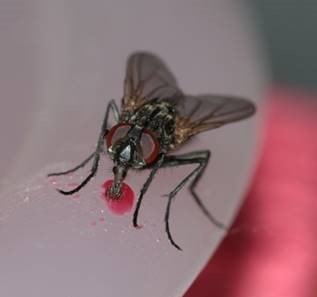House flies are major carriers of disease transferring ailments, including food poisoning, typhoid, tuberculosis, cholera and dysentery that can be harmful to both humans and pets. They breed and feed in filth, including garbage, feces, human food, animal food and carcasses, garbage, excrement and rotting food. House flies pick up bacteria, fungi, and viruses and then spread these pathogens by contaminating food and water. The average life span for a house fly is less than one month. House fly eggs are laid in warm, moist material that will supply suitable food for the larvae. The female lays six batches 100 eggs. In warm weather, eggs hatch in about one day.
Go Green Pest Control owner Randy Bilesky is a long-time South Delta resident. Trained and certified, Bilesky has first-hand knowledge of the pest problems that local homeowners and business owners encounter.


